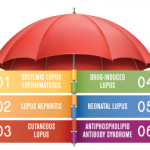ACR BEYOND LIVE—Among patients with systemic lupus erythematosus (SLE), lupus nephritis remains one of the leading causes of mortality, and patients with both SLE and end-stage renal disease demonstrate standardized mortality ratios higher than 60 times that of patients with SLE who have normal kidney function.1 Although the ACR Guidelines for Screening, Treatment, and Management…









